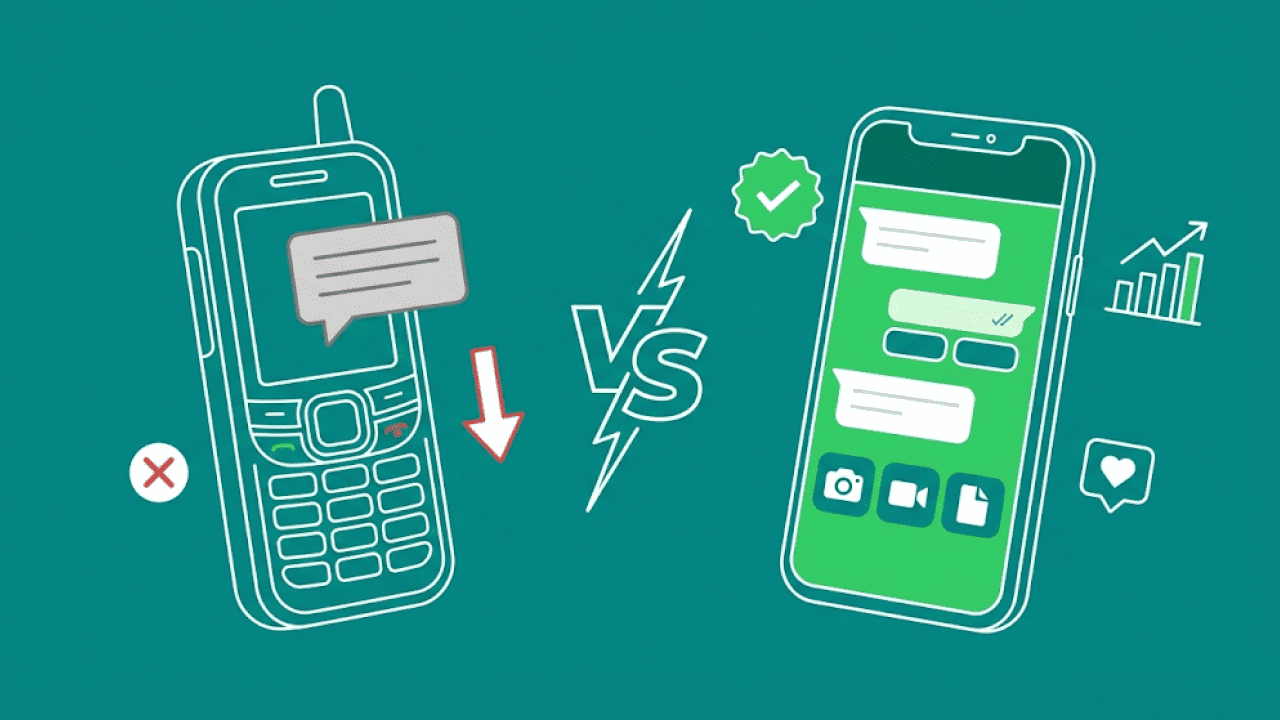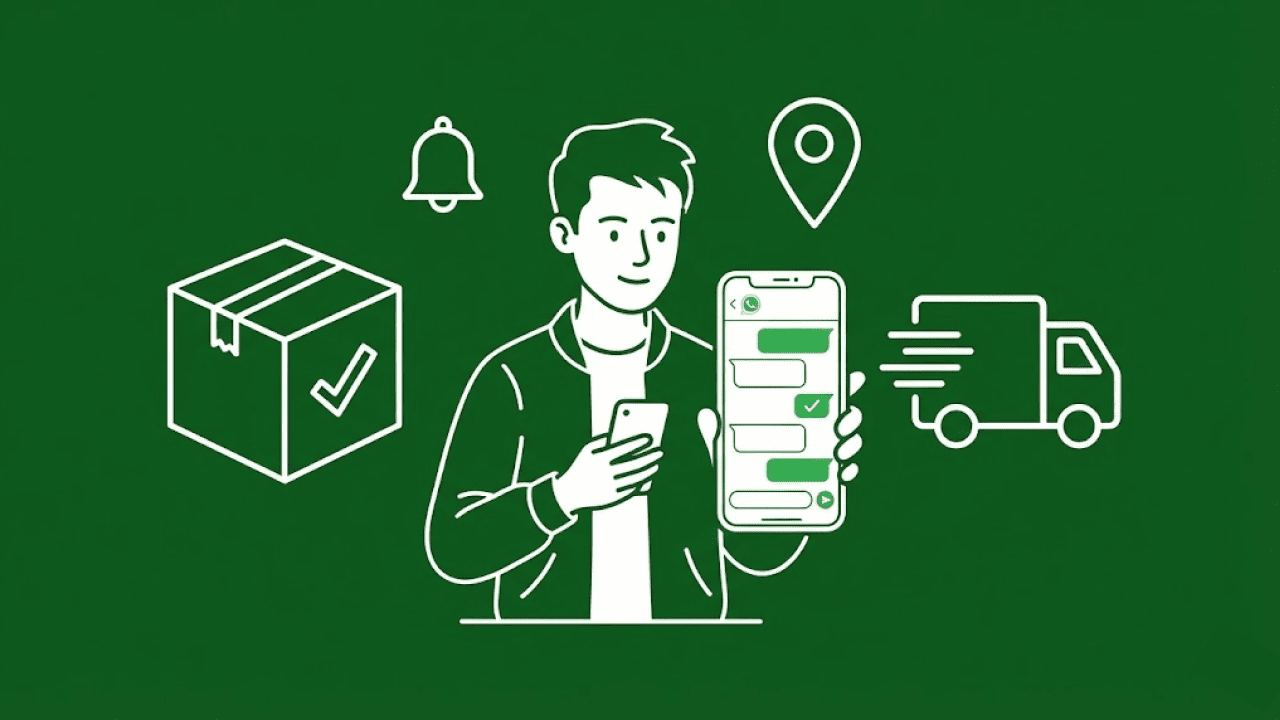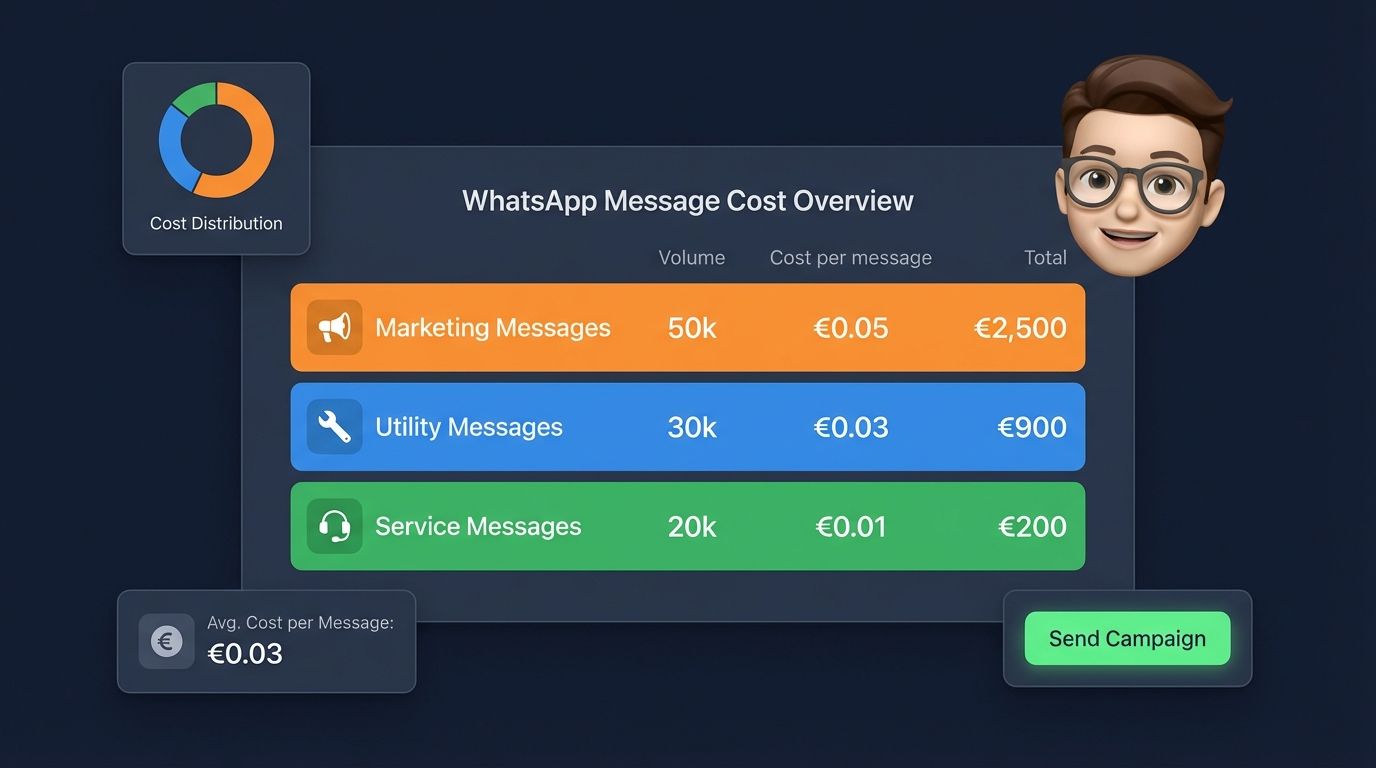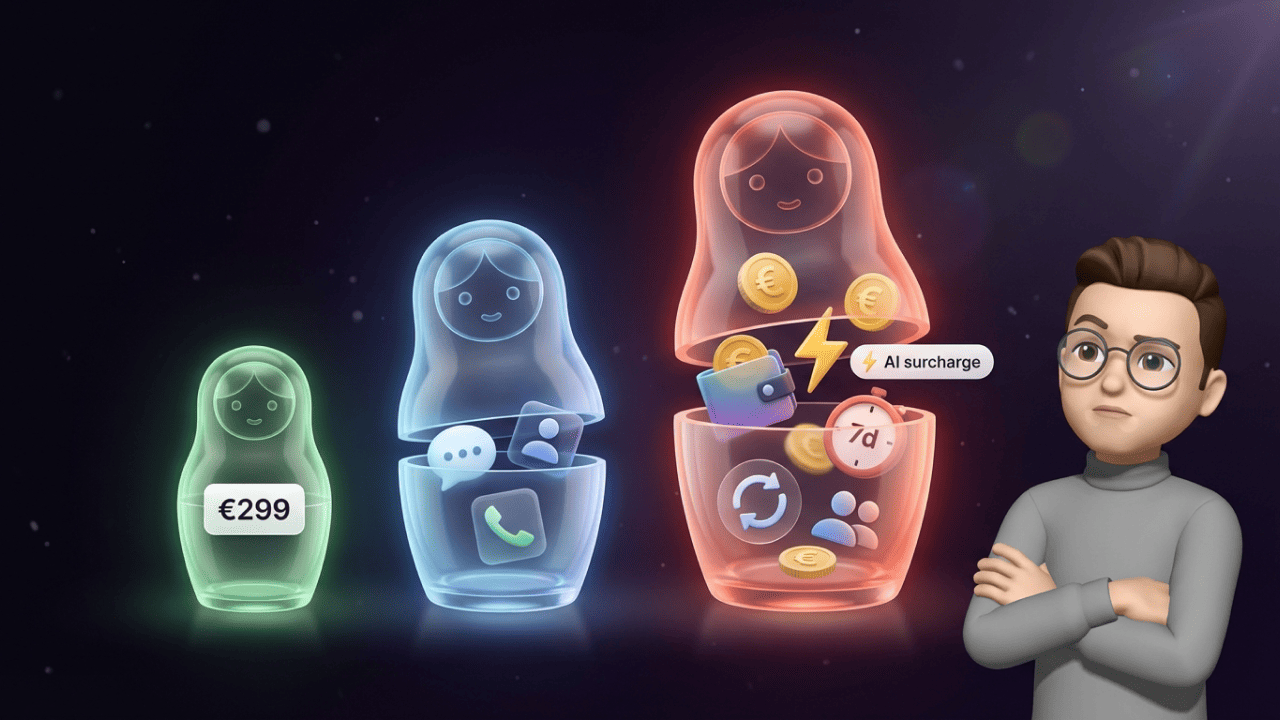The advertising industry has always tried to influence potential customers and persuade them to buy using various psychological methods. Behaviour patterns are a central component of these strategies. Ever since the groundbreaking research of US psychologist Daniel Kahneman, these behavioural patterns have been an indispensable tool for every experienced marketer.In this article, you will find out what behaviour patterns are and why they are indispensable for efficient WhatsApp marketing . In our blog post on Conversion rate optimisation in WhatsApp marketing, you can find out more about the synergies between CRO and WhatsApp marketing.
Today's guest author:
Christoph Böcker is the founder and managing director of growganic GmbH. growganic is a specialised agency for web analytics and conversion optimisation through A/B testing. Based on extensive research in the areas of website behaviour, user experience and consumer behaviour, growganic carries out optimisations that lead to measurably more orders, sales per user, shopping baskets and growth. In the process, growganic has already helped well-known companies and brands to achieve more data-driven growth and better decisions.
What are behaviour patterns?
Behaviour patterns are subconscious ways in which people act or react to certain stimuli or situations. Certain behaviours are deeply rooted in human psychology and often influence our decision-making subconsciously.
Behaviour patterns are an important part of consumer psychology and have been established in marketing for many decades. In WhatsApp marketing, knowledge of certain behaviour patterns helps you to better understand the needs and behaviours of your target group and, based on this, to advertise your offer more efficiently.
In the following sections, we describe four behavioural patterns and how you can apply them to your WhatsApp marketing.
Fear of Missing Out (FOMO)
We humans hate missing out on things. The party of the year, the conversation during the coffee break, the one-off special offer - nobody wants to feel left out. It is precisely this human need that is described by the term "Fear of Missing Out" or "FOMO" for short. It is the fear, deeply rooted in human psychology, of missing out on an interesting or worthwhile experience.
In WhatsApp marketing, FOMO offers an enormous opportunity to subconsciously trigger this fear in customers. Messages such as "Get 20% off the entire range today only" immediately create a sense of urgency.
Scarcity in particular plays on the fear of missing out. In a world of abundance, the feeling of scarcity creates a special desire in us humans.
"What, only 10 of this item left? Better grab it quickly before it's gone!"
In WhatsApp marketing, for example, you can advertise a special offer that only applies to the first 100 people who take advantage of it.
 .
.
Metaflow WhatsApp marketing best practice on the subject of "FOMO" - 24h-Early-Access with guaranteed stock!
Play with the fear of missing out and you will be able to significantly increase the engagement and interaction of your target group. Use your knowledge of the Fear of Missing Out wisely and authentically. Always remain fair and don't overdo it, otherwise it can quickly backfire.
Customers have a very keen sense of whether they are being fooled. If the strictly limited promotion is still valid the day after it expires, you are gambling away your credibility. If one discount follows the next and you want to appeal to FOMO in an inflationary way, it loses its effect.
"Why should I take advantage of this sale with 20% off the entire range when there's another similar promotion next week?"
You should also be honest when it comes to scarcity. Artificial scarcity, as is often used, can increase demand in the short term, but harbours the risk of losing customer trust in the long term.
So if you proceed with caution and integrity, you can fully utilise the potential of FOMO in your WhatsApp marketing.
To get (potential) customers into your WhatsApp marketing, you can also utilise the power of FOMO. Emphasise the exclusivity that your WhatsApp newsletter offers, for example with
Exclusive deals and promotions
Being informed of news before anyone else
Exclusive behind-the-scenes insights, for example into the creation of a new product
Direct communication and priority for all support requests
You should always clearly emphasise what the customer gets out of subscribing to the WhatsApp channel and what benefits they enjoy.
Urlaubspiraten advertises its WhatsApp newsletter with exclusivity and regular hot deals
Anchor effect
You are browsing an online shop and find a notebook for €2200. Right next to it, a similar model is displayed for €1300. Although €1300 is still a high amount, it suddenly seems like an attractive offer compared to the first price.
This psychological effect is also known as the anchor effect. When evaluating information or making decisions, we are strongly influenced by the first value or information we receive (the "anchor").
The anchor effect offers a golden opportunity for your WhatsApp marketing. Present an offer in your WhatsApp newsletter and include the original price. This makes your actual sales price look much more attractive compared to the anchor.
 .
.
High prices and a hefty Halloween discount mean a strong anchor effect paired with FOMO, best practice example of WhatsApp marketing "Kloster Kitchen"
Although we as consumers are confronted with strike prices and discounts on a daily basis, and know purely rationally that these are used in a targeted manner, the anchors still have an effect on our subconscious.
But be careful: the trick is to use the anchor effect with moderation and purpose. Excessive anchors could put your customers off or even annoy them. A super special offer with a price reduction from €999 to €99 is not very credible.
Bonus tip:
Studies have shown that the anchor effect works even if the first number has nothing to do with the price. Messages such as "Today is the 150th day of the year and on this special day we are offering our most popular shampoo for €9" may seem rationally absurd or incoherent. However, this type of message has an amazing effect. Unconsciously, we use the 150 days as an anchor and then put the price of €9 in relation to it. The result? The €9 suddenly seems like a particularly good offer
Reciprocity
A colleague brought you a coffee even though you didn't ask for it. How did you feel? You probably felt a strong urge to return the favour and do him a favour soon.
This inner need to return a favour received is called reciprocity. Reciprocity is deeply rooted in us and plays a major role in our social environments. In marketing, you can utilise this principle and make an advance payment to your prospective customers without directly asking for anything in return. This greatly increases the likelihood that the potential customer will show their appreciation and buy from you or recommend you to others.
In WhatsApp marketing, you can use reciprocity in a targeted way and provide customers with special content. Do you sell facial care products? Then share the best nutrition tips for healthy facial skin with WhatsApp subscribers. Or record videos on what the perfect facial care routine can look like. This valuable information will ensure that customers think of you first the next time they buy skincare products.
Here are a few more examples of valuable content that are suitable for your WhatsApp newsletter:
Exclusive interviews or Q&A sessions with experts
Advance access to new products or collections
Answers to frequently asked customer questions about the products
Checklists for optimal use of the article
Short webinars or workshops on topics directly related to your product.
Of course, it depends on your industry and your product range which content offers the greatest added value.


![Complete WhatsApp Marketing Guide: Use Cases, Practical Examples & Strategies [2026]](https://blogfiles-chatarmin.s3.eu-central-1.amazonaws.com/Whatsapp_Marketing_Guide_15a8236cea.png)





